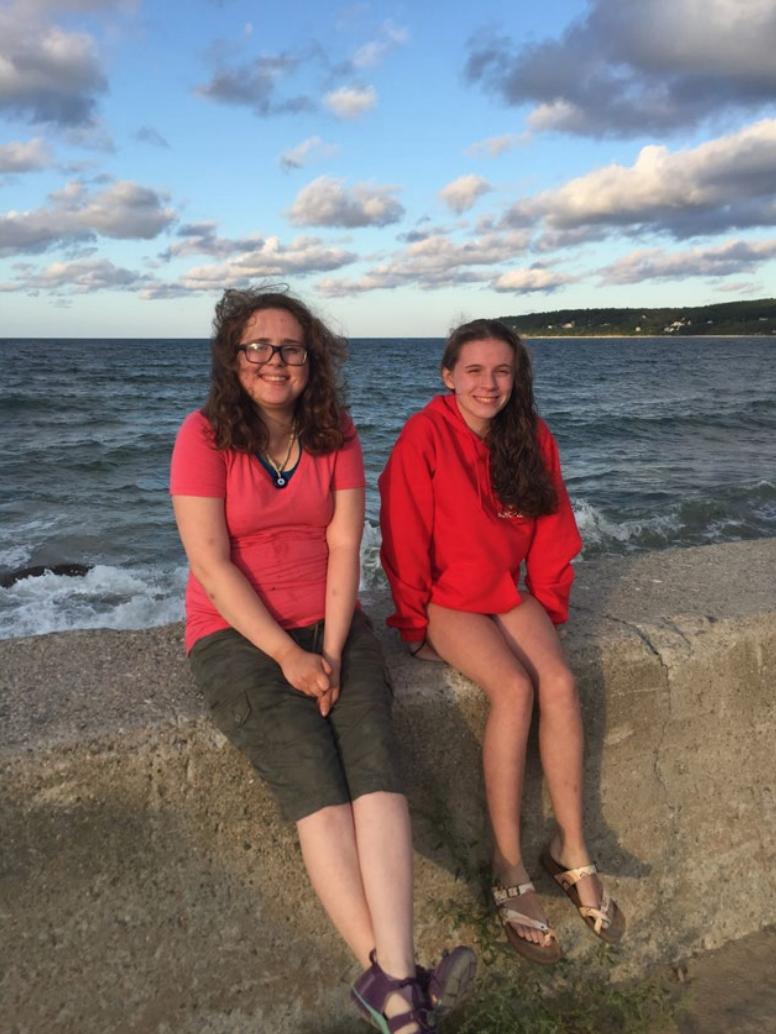Katie was born on September 28, 2002. Upon her birth, she was promptly whisked away to the neo-natal intensive care unit (NICU). Although mom and Katie were discharged from the hospital, this was the beginning of our special needs journey. Katie has endured severe food allergies, neurological, immune problems and developmental delays that led to multiple doctor visits at first. These challenges led to specialists, speech, physical and occupational therapy appointments, and early intervention services. Multiple food allergies meant we could not eat outside the home, as everything had to be cooked from scratch. The risk of anaphylaxis was ever present if cross-contamination or mistakes were made. There were frequent emergency room (ER) visits for asthma flares and sometimes IV antibiotics. In July 2005, Katie was diagnosed with autism.
Liz was born on May 7, 2004. She also had severe food allergies and immune challenges. In March 2006, Liz was unable to eat and digest food resulting in a 27-day hospital stay where she lost 17 pounds and became unable to walk. Liz was diagnosed with eosinophilic gastroenteritis, duodenitis and esophagitis. The local hospital advised that this was an expensive, long-term problem and that they lacked the expertise to handle such a severe case. They suggested Mount Sinai Hospital (Mt. Sinai) in New York City or Cincinnati Children’s Hospital (CCH). Since we had local medical and educational services for Katie, we chose to treat Liz at Mt. Sinai.
All foods were removed from Liz’s diet. She drank prescription elemental formula for months. As Liz started to grow again, her ability to drink enough calories became impossible. She required a feeding tube during the night via pump, which we refilled every few hours. Reintroducing of foods in 2007 required an endoscopy after adding six additional foods to keep the eosinophilic disease at bay.

Liz was traumatized and became selectively mute, only speaking to family members and not anyone outside the household, especially doctors in white coats. We were referred to a doctor who specialized in medically complicated cases and selective mutism treatment. With treatment, Liz began speaking again and was mainstreamed in kindergarten.
Liz had a flare up of her eosinophilic disease which stumped Mount Sinai Hospital in 2011. They referred us to CCH, which we visited three times for treatment. CCH suggested that Katie might have eosinophilic disease and that they also treat Katie’s food allergies. However, they were soon stumped and referred our family to the National Institutes of Health (NIH) Allergy and Infectious Disease division for further review in 2012.
The NIH was intrigued and offered to help. We spent a week at the NIH from 8am to 5pm daily being evaluated by specialists from dental to genetics. The NIH advised that both girls have an allergic mast-cell disorder that is a single disease with multiple manifestations, including chronic skin flushing, itching, eczema and hives, bee sting allergies, skeletal abnormalities, and GI disturbances including heartburn, as well as numerous food and drug reactions.
As adolescence kicked in, Katie became increasingly unstable. She was hospitalized for two weeks in 2014. Finally, in 2016, she had a 30-day inpatient stay at a specialized hospital unit for developmental delays and psychiatric disorders. Multiple physicians from Columbia to Albert Einstein were consulted. Katie was diagnosed with bipolar disorder, which will require lifetime treatment and frequent monitoring, on top of the autism and other medical problems already at play. Multiple hospitals, medical specialists and our local physicians coordinate to maintain continuity of care. Every day Katie requires multiple medications and monitoring.
The best advice we received in 2005 was to continue to be a part of the community and to participate as much as possible without isolating ourselves at home. Our family and our professionals have worked diligently to keep our children safe, happy, healthy, and growing, but the girls’ challenges have affected everyone involved. We are grateful for help of the Shannon Daley Memorial Fund.
